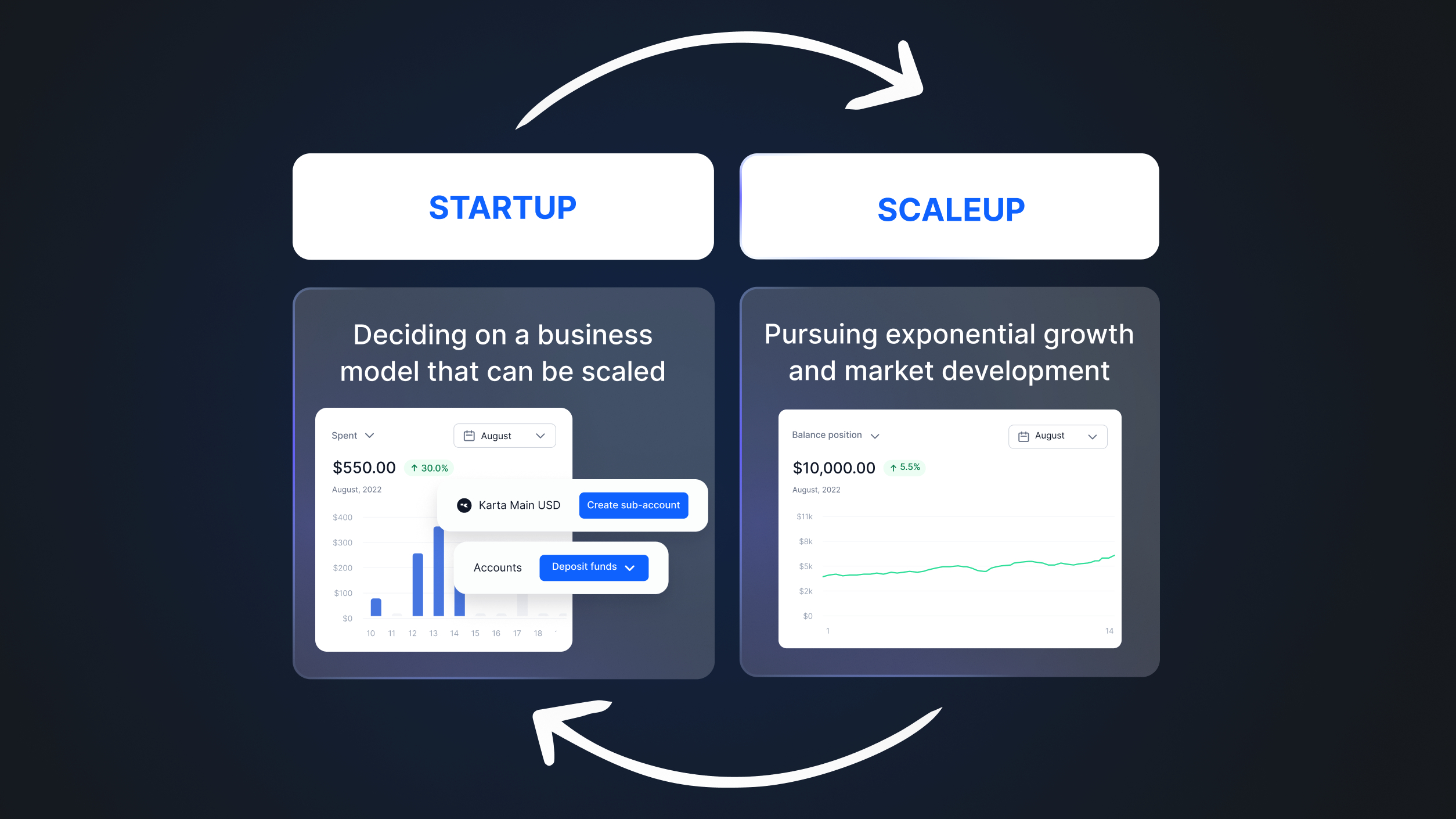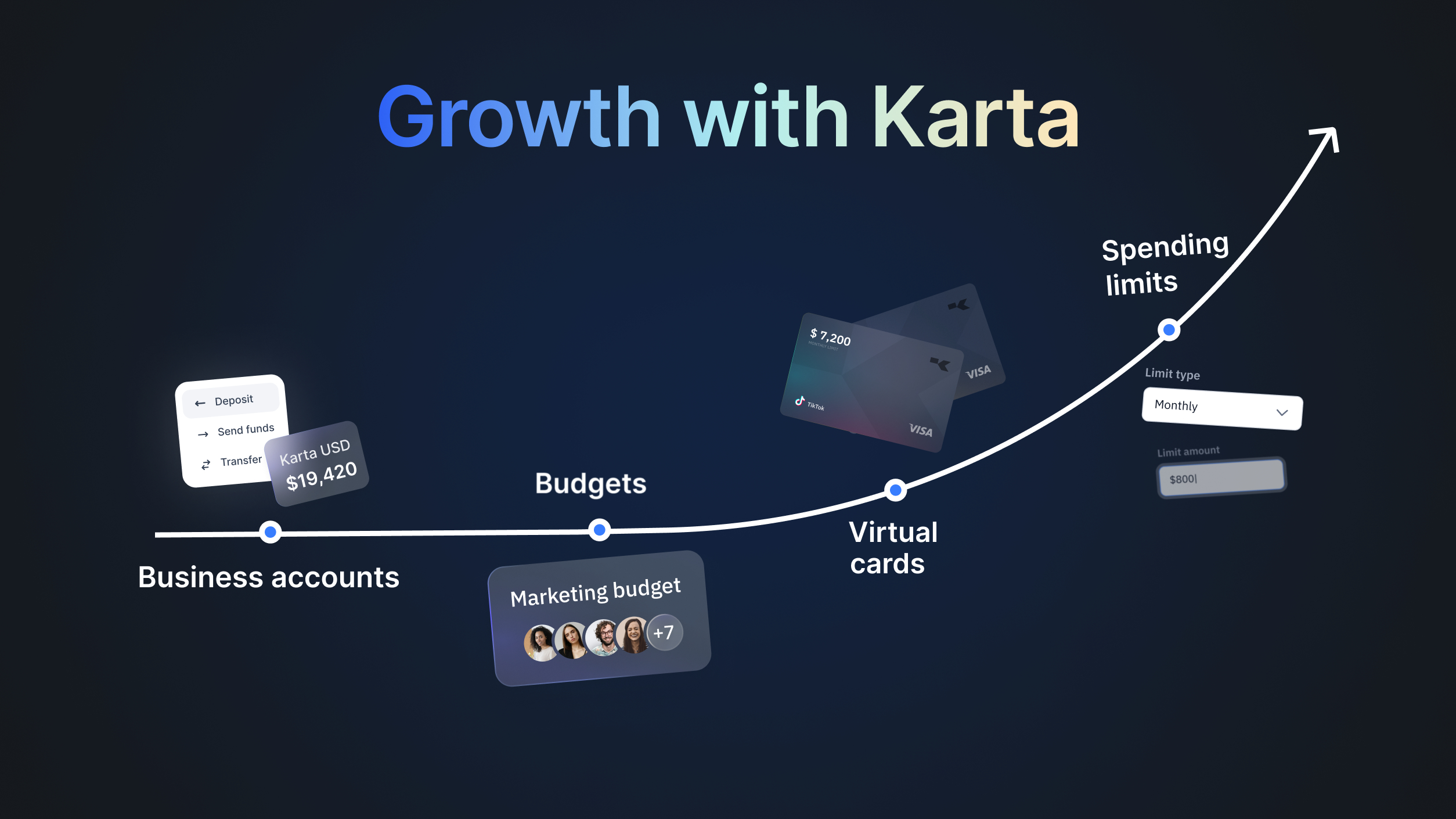While recent political events have made it considerably tougher to grow a business in 2022 than in 2021, certain industries are still growing, be it at a slower pace. U.S. e-commerce, for instance, grew 7.3% in the first half of 2022, reaching a total of $2.32 trillion in retail sales.
The rules of the game, however, stay the same: the fastest-growing marketplaces account for about 72% of total e-commerce sales in the U.S., with Etsy, Walmart, and Chewy topping the list in 2021. That means your company must grow in order to get a piece of the 72 percent pie, and the faster it grows, the better.
We know from school, however, that growing anything requires lots of hard work and patience. That is why the smart ones out there seek scale rather than growth. While scaling is more difficult than growth to achieve, knowing when to scale and having a robust scale up business strategy can turn your dream of dominating the market in the near future into reality.
Growth and scale: the difference
Human beings don’t need to be taught what growth is. The process looks tediously simple — you invest your time and effort and get rewarded with a few inches of growth in business.
The primary issue with growth is that it is slow and linear, which means that you get only as much as you invest. With input equalling output, growth is a draining process, with overheads growing at the same pace as your business. The result is fairly obvious: once your startup has reached the desired size, the amount of time and money required to keep it all running will be so large that you'll have to forego things like gym memberships and family dinners.
Business scaling, on the other hand, allows for explosive growth without a considerable increase in input. In other words, growth for business is about working your tail off, while scale entails being smart.
It’s like a magic trick that makes your tree grow without intricate water logistics and costly fertilizer supplies, except it’s no magic. We’ve seen revenues quadruple after a company’s publicity went viral. With a little extra spent on marketing, the business got four times more customers than usual. Hocus-pocus.
However, finding the trick that’ll work for your business is, well, tricky. That’s why the majority of scale-ups become screw-ups. Let's throw some light on why it happens.
Why businesses fail to scale
78% of scale-ups don't succeed. Some of them are absorbed by larger enterprises, some sustain themselves without scaling a company, and the rest die.
One of the possible causes of failure is companies' underestimating customer lifetime value while paying attention to less important metrics like user traffic. That is, behind all the marketing bells and whistles, those startups provide no real value to the customer. Being distracted by their own market scaling razzmatazz, they are caught off guard by their incapacity to scale the unscalable, that is, deficient user interest.
Surprisingly, another foe of scale your business is innovation. While it’s true that new technologies can unlock a world of opportunity, innovation puts too much strain on a young enterprise, and, more often than not, it collapses in product scale. The trouble is that your company will have to pave the road for your new-tech future while also maintaining existing turnover — a feat too difficult even for market giants, let alone young startups.
But still, the most common reason for failure to scale is scaling startup too quickly. Imagine a complex structure being built on a shaky foundation. That’s a startup scale without having built a product people really want and attracting enough capital. This brings us to the next question in business scaling strategy.

When scale?
To avoid scaling prematurely, it’s good to keep in mind the 4 stages each and every scale-up goes through.
Startup
At this point, it's just you, a couple more people, and a coffee maker. Your product may be the same as what you had in mind when you first started, or it may have evolved into something even you find surprising. Either way, your product has already proven to be what customers have been wanting, and startup scaling is the first thing in your wishlist.
Growup
You now have about a dozen employees and have delegated most of your routine to your trusted crew. Aside from being a hungry-for-success entrepreneur, you’re now the mama-bear because your staff's well-being depends on your ability to pay their salaries. It's hardly surprising that your primary goal at this stage is good old money-making (sales growth, customer acquisition, and so on)..
Scaleup
Your pots are boiling non-stop. Customers are crazy about your product. You have attracted series B funding at least. To get to this stage, you may have hired up to 200 employees, though it is quite possible you made it with the very same team you had at the previous stage. But, most importantly, you’ve grown big enough for your competitors to notice. Now is the time to kick some ass. At this level, scale-up strategy and pre-scale preparation are critical. The nitty-gritty of strategic scaling will be covered in the following section of our scale talk..
King of the world
You now own a company with hundreds of employees and a hefty market share. But you don’t want to share, you want to dominate the industry. On your head lies a gleaming conqueror’s helmet. The sky is the limit. After some dominance, you get dazzled by your own radiance and fall from your horse. Your share is snatched by a younger scale-up with pimples and high levels of testosterone.
The scaleup playbook
One bad thing is premature scaling. Another bad thing is scaling without a plan. Though there's no universal recipe for how to scale your business, there are some key points to consider for any business wishing to scale. When ignored, these key points are sure to become kill points.
Ensure there’s enough investment
We have already said that the successful scale wants series B or C funding. Though scaling requires less funding than growth businesses achieve, it still requires funding. Even if your ad goes viral, you have to be ready to feed the sky-rocketing demand you’ll face after.
Be lean
Focus on your niche and kill all the features that are not you, that will help you scale for growth.
Outsource wherever possible
If in anticipation of an influx of new customers, you expand your operation to huge warehouses and numerous departments, you may end up with lots of expensive space that is empty and staff that is idle when the demand subsides. And if you opt to stare at the ceiling and do nothing "till they come," you will hardly be ready when demand spikes up. The golden middle is outsourcing. Building a reliable network of outsourcing partners will allow you to multiply your capacity when demand is high and quickly shut the tap when demand is low.
Honor your corporate culture
Corporate culture is not some trust-fall exercise kind of crap. It’s making sure your company’s goals and values are written down somewhere for newcomers to see and for your existing employees to revisit. Those goals and values may sound obvious to the few members of your team at the beginning, but they are quickly forgotten as your staff grows and your focus is elsewhere. A seamless and smooth onboarding process for new employees is part of a solid corporate culture. When hiring talent, it’s crucial to make certain your sense of what's right matches theirs.
Automate your inner processes
Most of the pre-scale preparation is actually not about scaling for growth itself, but more about coping with the demand that comes after your client acquisition has gone through the roof as a result of successful scaling. One way to prepare for exponential growth is to ensure the scalability of your internal processes.
For instance, if you've invested in a smart expense tracking system, your spend control will not get six times more complicated as you hire six times more employees. More importantly, you’ll be able to put on a cap of darkness and control your teams’ spending without being seen.

Why scaling is easier achieved with Karta
When looking for the right strategy to scale business, it’s vital to get rid of distractions and delegate at least part of your routine tasks to trusted tools. Karta, for instance, was designed for scaleup business to help relieve of the time-consuming spend control load.
Open a business account in 5 min- The ability to create an unlimited number of virtual cards means targeted and flexible promotion. With preset limits, no one is overpaying for ads that are no longer effective, ensuring that each cent of your marketing budget is working to attract new customers. The "one card — one ad campaign" principle provides for a continuous publicity flow.
- Having a single budget where you can manage multiple cloud-/subscription-based services lets you automate most of your inner processes, such as task distribution and new employee onboarding.
- Yes to better fraud protection. According to estimates, e-commerce losses to online payment fraud were estimated at $20 billion in 2021. A card with a preset limit per vendor or outsourcing partner means minimal risk of fraud, saving you the hassle of manually controlling each charge.
- Being able to track all your transactions in real time lets you stay in control, draw timely conclusions, and act strategically for the future scaling up company. And all that with a cap of darkness on.
- Having all of your wallets and accounts on a single dashboard allows you to see the big picture and plan the scale of company budget more efficiently.
- Delegating tasks to employees and managers via Karta's smart interface will let you shake the unnecessary load off your shoulders and, instead of obsessing about your corporate spend, concentrate on the future of your scale-up.
